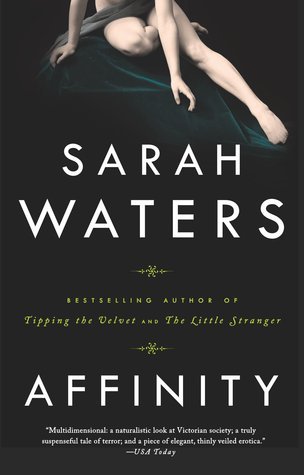More on this book
Community
Kindle Notes & Highlights
Pa used to say that any piece of history might be made into a tale: it was only a question of deciding where the tale began, and where it ended. That, he said, was all his skill. And perhaps, after all, the histories he dealt with were rather easy to sift like that, to divide up and classify—the great lives, the great works, each one of them neat and gleaming and complete, like metal letters in a box of type.
Had they any Jewesses? and she answered that there were always a number of Jewesses, and they liked to make ‘a particular trouble’ over the preparation of their dishes. She had encountered that sort of behaviour, amongst the Jewesses, at other prisons.
What had I thought? With her eyes upon me I did not know. I looked away from her, but still felt her watching. And then she said, quite evenly, ‘You have come to Millbank, to look on women more wretched than yourself, in the hope that it will make you well again.’—I remember the words very clearly, because they were so gross, and yet came so close to the truth, that I heard them and blushed.
‘To have the matron’s eye,’ she said, ‘forever on you—closer, closer than wax! To be forever in need of water and of soap. To forget words, common words, because your habits are so narrow you need only know a hundred hard phrases—stone, soup, comb, Bible, needle, dark, prisoner, walk, stand still, look sharp, look sharp!
A man who stepped to help me carry them said, Why was it that the gentlest readers invariably ordered such brutes of books? He held the volumes up to read their spines, and smiled at them.
Reminds of FMA ... Kne of the volumes in the back where she's at a bookstore buying reference materials for her manga and wondering what the csshier was thinking
The others, who do not know me, call me ‘madam’ now, I noticed, instead of ‘miss’. I have turned, in two years, from a girl into a spinster.
Give me any name but “Miss Prior”—which might be the name of a matron, or of any common visitor; which might as well be nothing to me. Give me a name that will be something—give me a secret name, a name that has, not the worst of you, but the best . . .’
For the night has Millbank in it, with its thick, thick shadows; and in one of those shadows Selina is lying—Selina—she is making me write the name here, she is growing more real, more solid and quick, with every stroking of the nib across the page—Selina. In one of those shadows Selina is lying. Her eyes are open, and she is looking at me.
For the fact is, I had begun to wonder why, after all, I had gone in there, and what it was that I was looking for. At a book-case, however—well, a book may be on any queer subject, but one can at least always be certain how to turn a page and read it.


